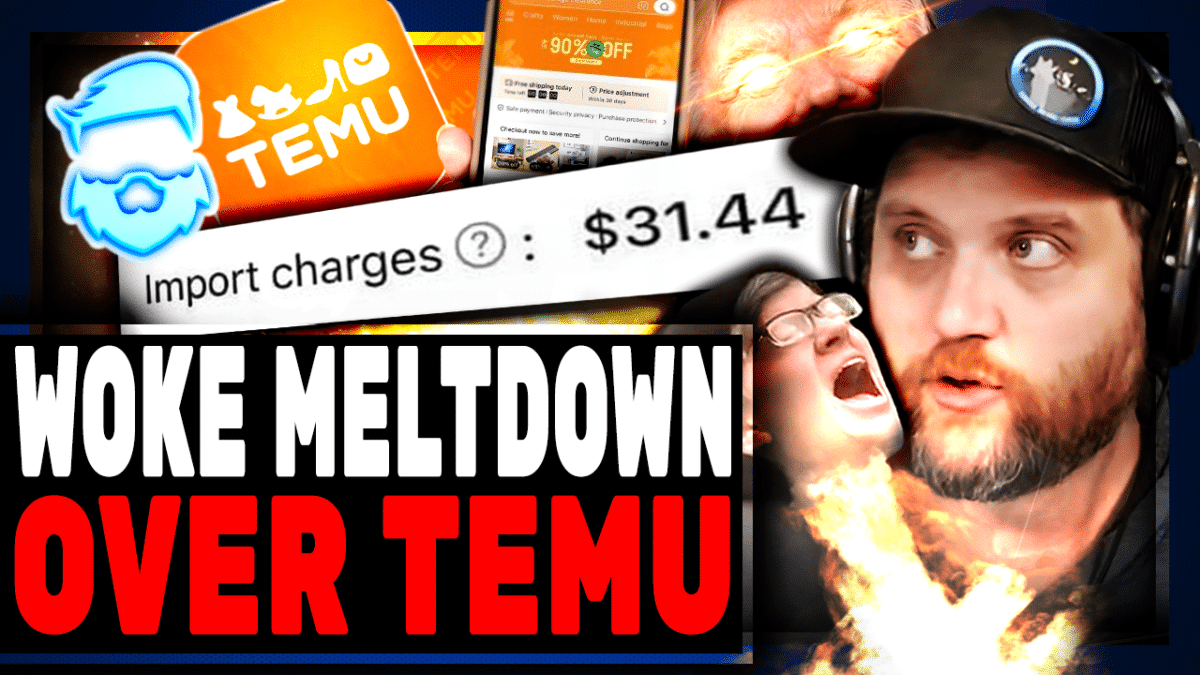
New BOMBSHELL Female Blackhawk Pilot IGNORED Desperate PLEAS By Male Co-Pilot To Avoid Tragic Crash
April 28, 2025
Entitled BRAT Rachel Zegler HUMILATED Again! New Project FLOPS & Gets ROASTED As TERRIBLE Dog Owner
April 28, 2025Tariffs Expose Reality of Cheap Imports, Sparking Debate
Recent tariffs imposed on goods from online retailers like Temu, Shein, and Wish are causing a significant reaction among consumers. While some express frustration over increased costs, particularly on inexpensive items, others argue these measures highlight the true nature and value of these imported products.
Many consumers seem “addicted to much cheap stuff”, and the current “meltdown” over tariffs is seen as stemming from this dependence. For example, one account details a grandmother purchasing a dress from Temu listed at $19, only to receive a receipt totaling $54 after a $31 import fee was added. This experience, shared online, is described as a “spectacular popular self-own”.
Critics contend that these websites primarily sell “cheap Chinese crap” that Americans don’t actually need. They argue that the focus is solely on low price, sacrificing quality. Instances of products breaking quickly, such as spatulas or sweatshirts falling apart after just one wash or dishwasher cycle, are cited. Some experiences are even more concerning, like a dress causing hives on someone without sensitive skin, suggesting these goods can be “dangerous”.
This situation is contrasted with a time when products made in America, like furnaces, lasted 15-20 years, whereas now they may only last 5-8 years. While older, longer-lasting products might have cost more initially (perhaps 125-145% of the price), the constant need to replace cheaper items every few years ultimately costs more over time. The choice is presented as paying $60 for a dress that could last a lifetime versus $15 for a “garbage” dress meant for one use that might cause problems. Similarly, a $100 “Chinesium” desk is compared to a $300 American-built desk that could be passed down through generations.
These tariffs, often associated with former President Trump, are viewed by some as a necessary step and an “absolute W” for America. The argument is made that America doesn’t need these retailers, and that sites like Walmart, Target, and Amazon offer comparable products at similar or even lower prices, demonstrating that “nobody needs to be shopping on Teimu”. Walmart, for instance, reportedly offers pages of summer dresses for under $20, and even items as low as $2.88.
The increase in prices due to tariffs is confirmed by Shein and Temu themselves, who released statements announcing price hikes for US customers effective April 25th, citing increased operating expenses. Some argue that China could easily resolve this by negotiating tariffs.
Attempts by some groups to use the consumer frustration over tariffs as a political weapon are dismissed as a “fake narrative” or a “pathetic Democrat act”. The perspective is that nobody who needs anything is shopping on Temu, and the country was “clothed and doing just fine” before it existed. Ultimately, the tariffs are framed as a favor to consumers by steering them away from “Temu garbage” and are seen as America winning. Some also believe these websites are potentially designed to steal personal information.
The tariffs are seen as a positive development that benefits American companies and potentially encourages better consumer choices centered on quality and durability over short-term cheapness.












